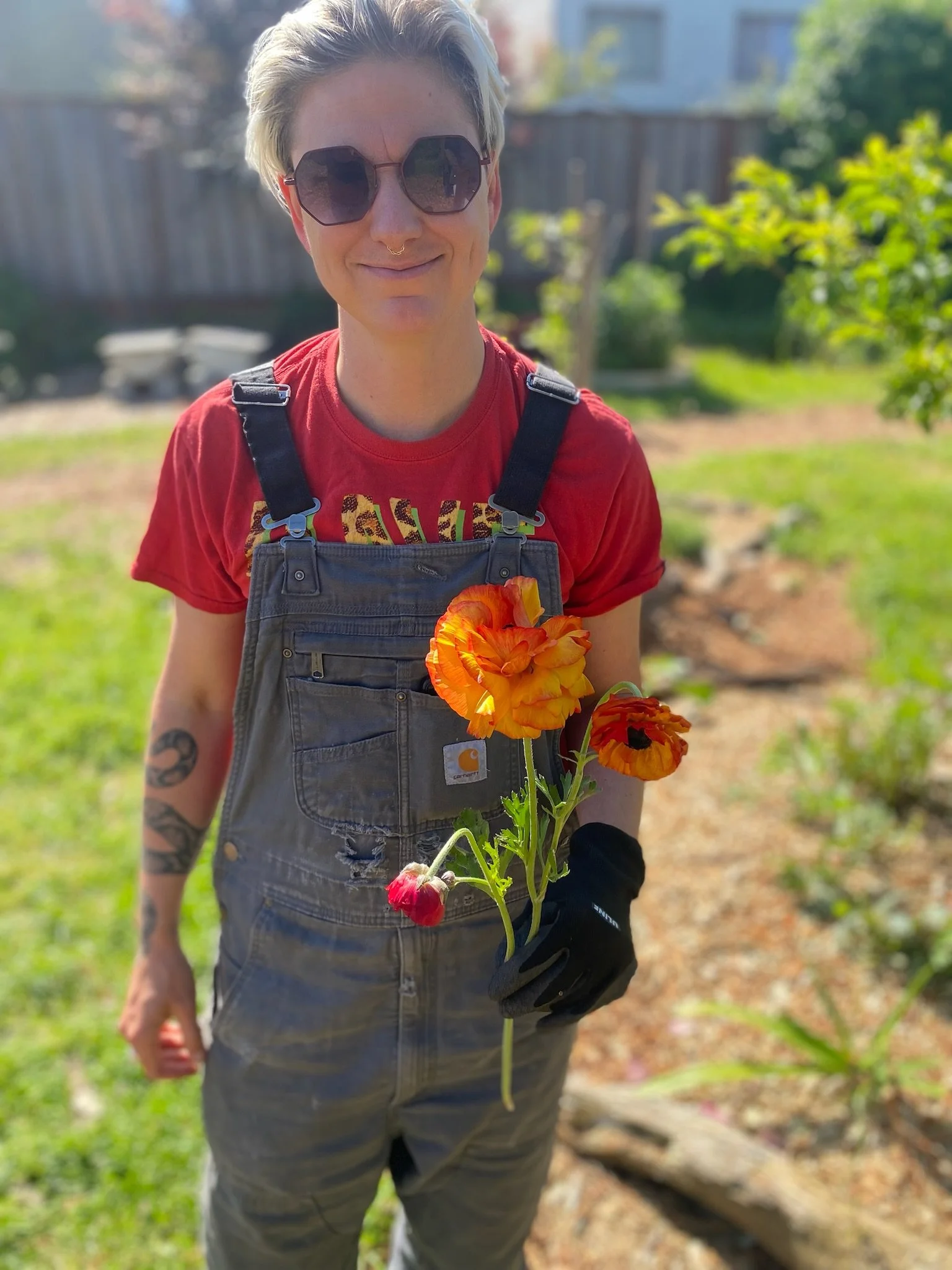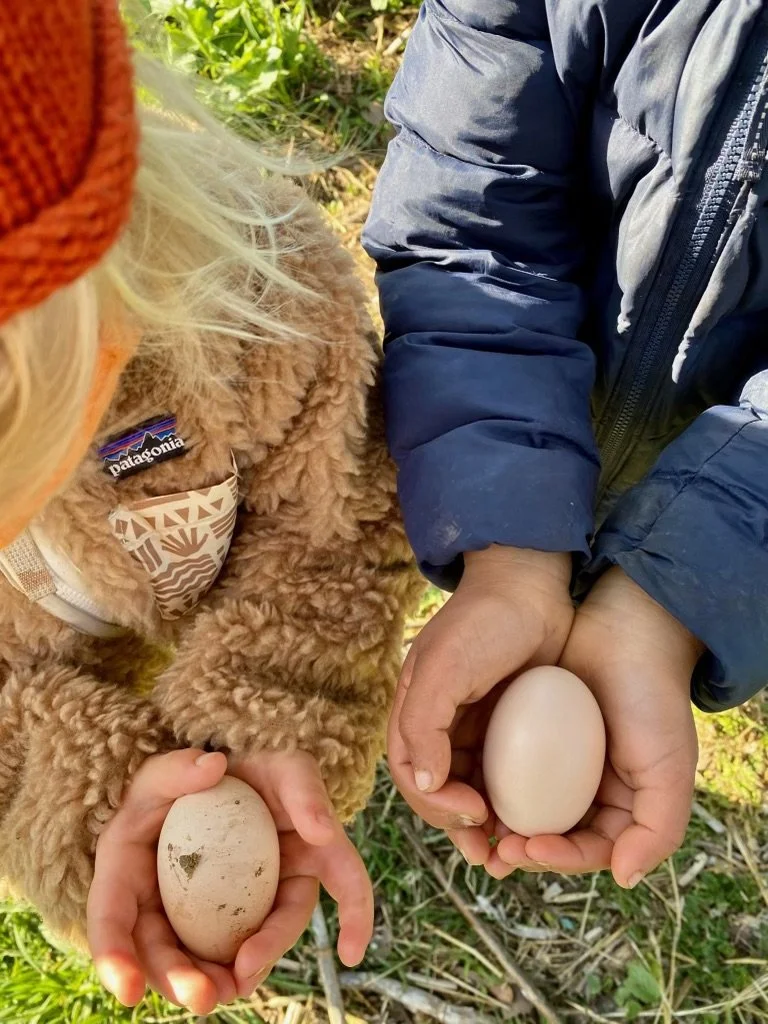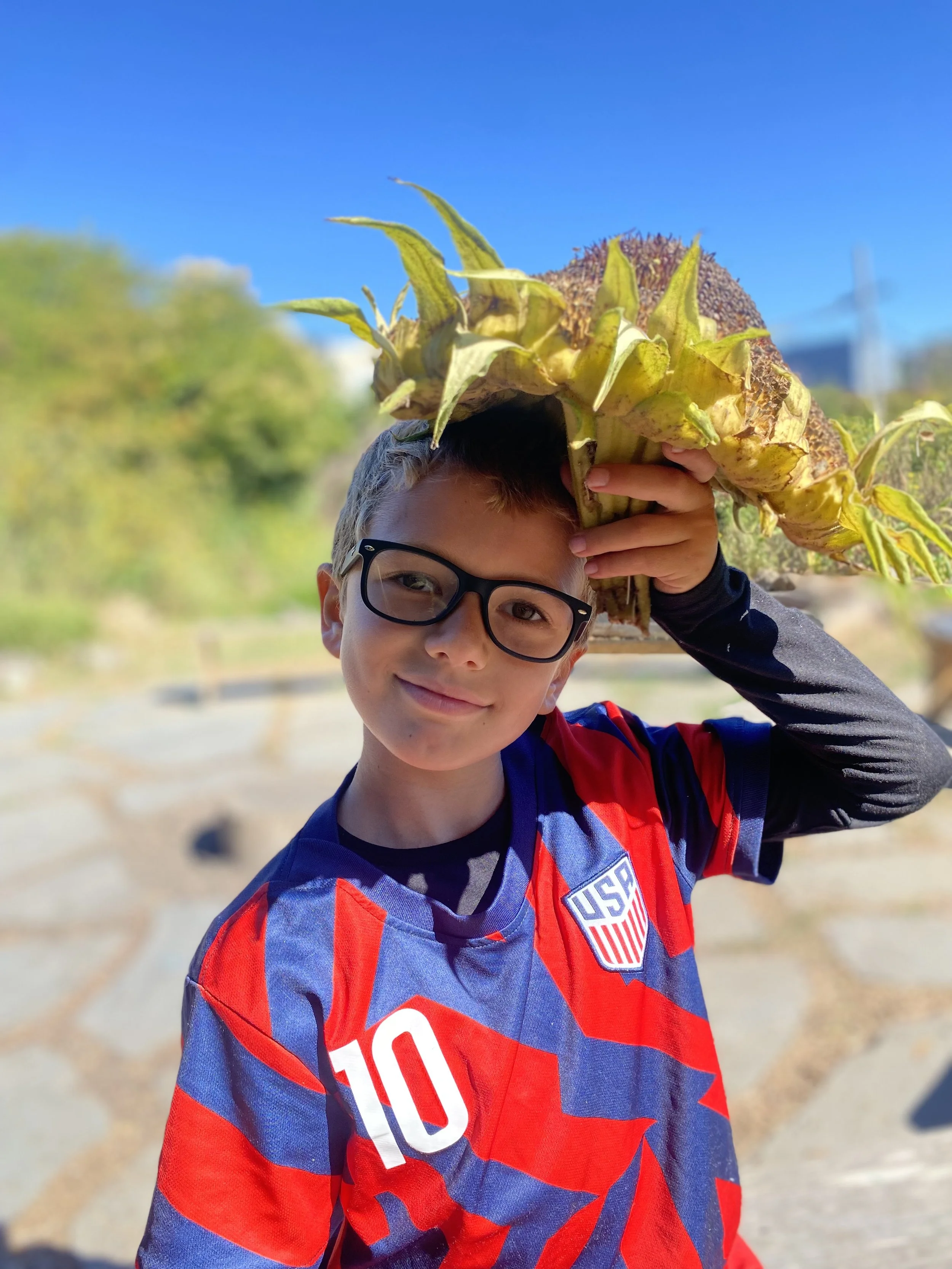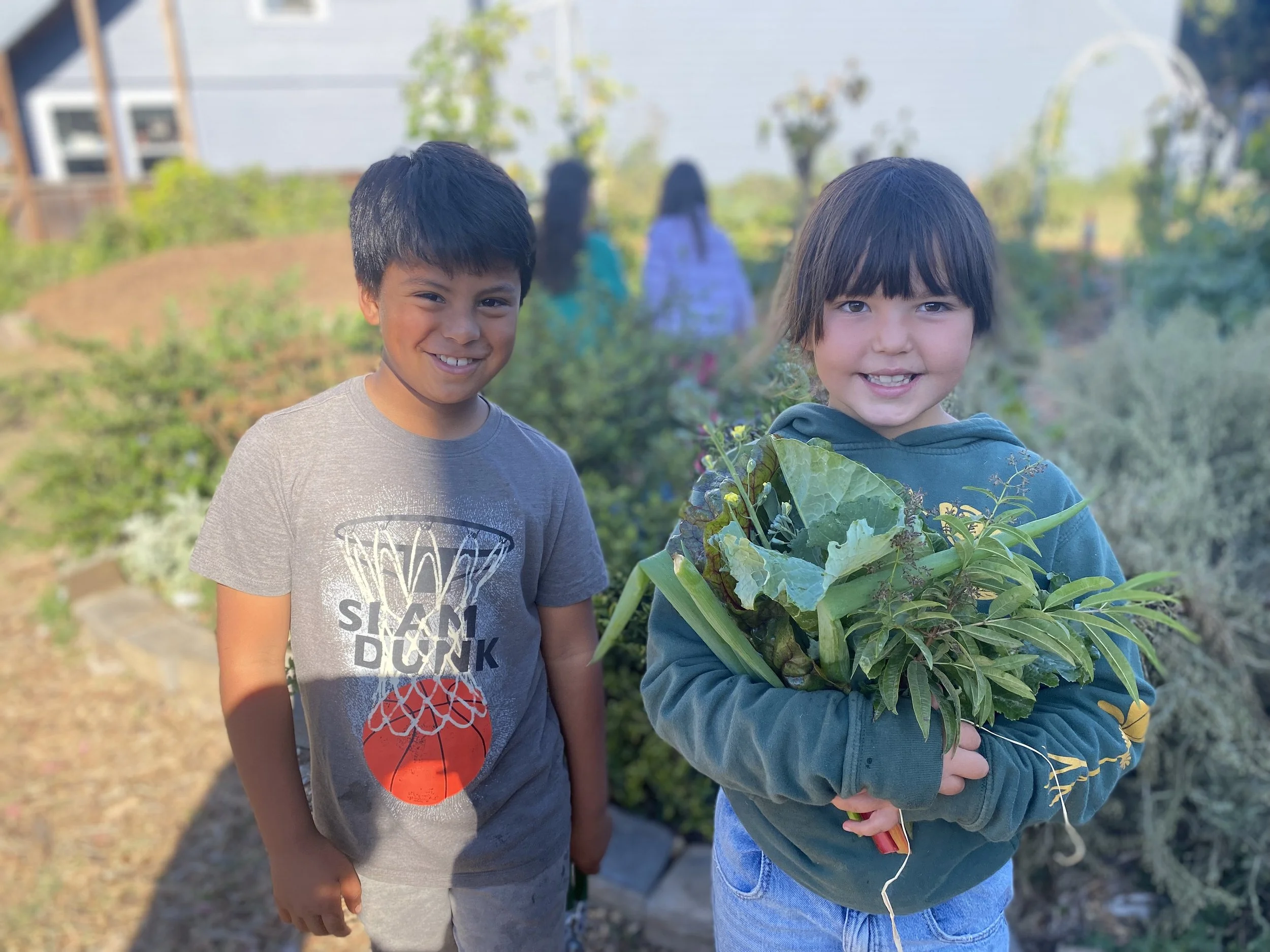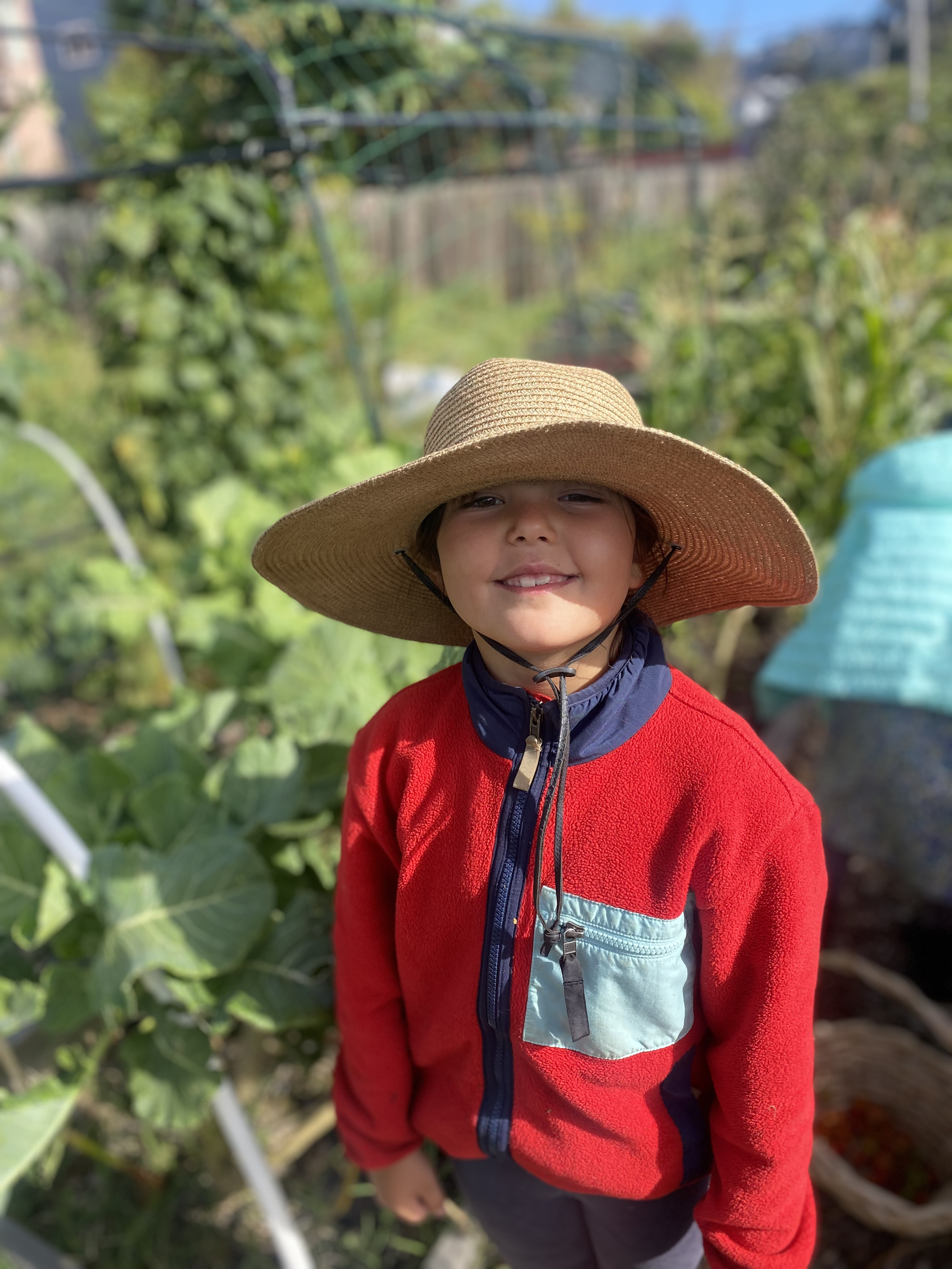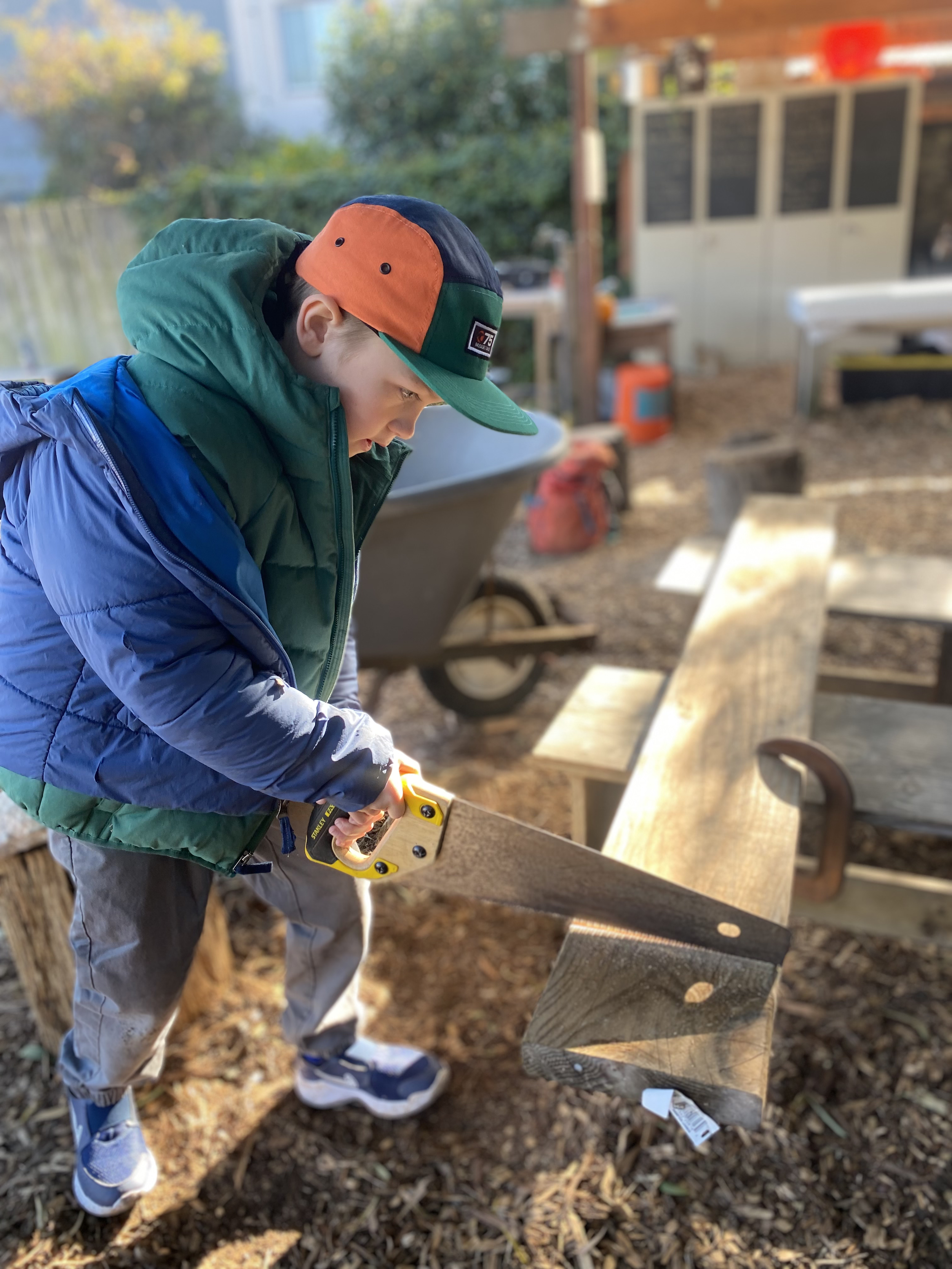
Learning on the Farm
A living classroom. A day of wonder. A weekly rhythm for every child.
At Golden Bridges School, every class from Preschool through 8th grade spends one full day each week at Hawk Creek Farm, our urban farm just down the street from the main campus in San Francisco.
A day at the farm is an integral part of our curriculum, and is what makes a Golden Bridges School education unique. Rain or shine, our farm days nourish learning through movement, wonder, and meaningful work, helping students grow as compassionate, capable humans. The farm lives deeply in our day-to-day life through songs and activities, and as students explore and experience the cycles of the seasons.
What Happens on “Farm Day”?
The children tend the garden, care for animals, cook with seasonal ingredients , learn to use many types of tools, write and draw about what they observe, and learn from the land. The lessons are shaped by age and developmental stage that build upon each other as the students make their way through the grades:
Early Childhood (Preschool & Kindergarten):
Imaginative play, seasonal songs and stories, gentle gardening and herbalism, natural dye projects, vegetable harvesting, soup making (including vegetable chopping), and animal care.
Lower Grades (1st–5th):
Composting, beekeeping, planting, herbalism, harvesting, tool safety, botany, storytelling, cooking, and teamwork.
Upper Grades (6th–8th):
Sustainable farming practices, soil science, ecological research, environmental justice, leadership in farm projects, cooking, herbalism, and reflection-based writing.
Why It Matters
Learning through Doing, Feeling, and Thinking
Farm work builds resilience, focus, fine and gross motor skills, and problem-solving through movement and rhythm.
Integrated Academics
Math, science, geography, and language arts come alive through practical, land-based applications.
Connection to Place
Through caring for plants, animals, and one another, students learn that the land is not only something to tend but also something to be in relationship with. Each interaction on the farm becomes an opportunity to give back, whether through watering, weeding, or simply offering gratitude. This nurtures a sense of reciprocity and responsibility as land stewards.
Social-Emotional Growth
Shared tasks build collaboration, confidence, and a deep sense of contribution to something larger than oneself.
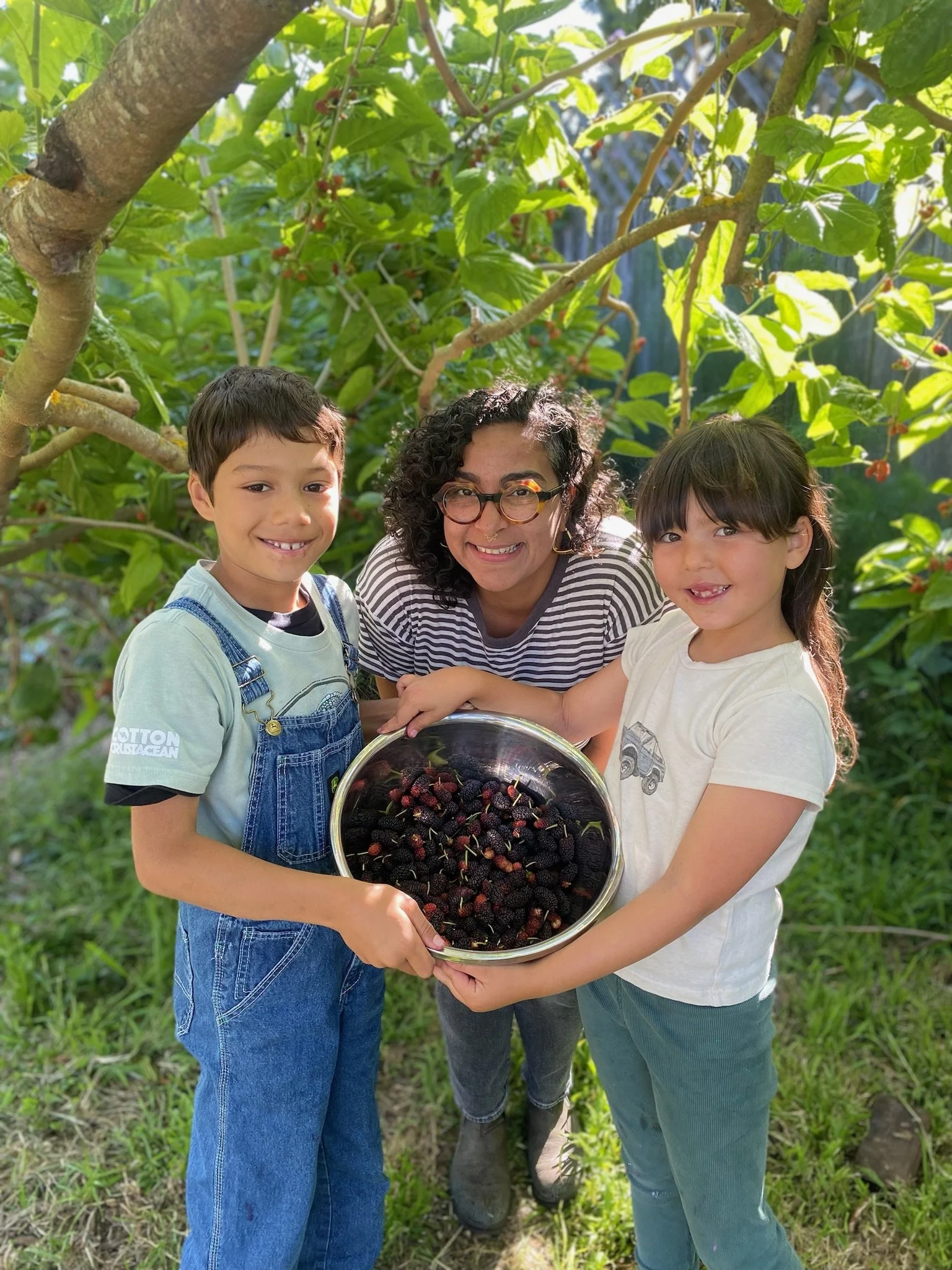
“It’s on the farm that our daughter began seeing herself as capable—of caring for animals, solving real problems, and working through challenges with joy.”
— Golden Bridges School Parent
Learn more about Hawk Creek Farm's nonprofit mission at hawkcreekfarm.org

